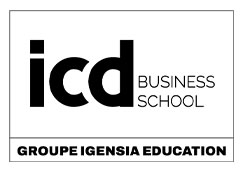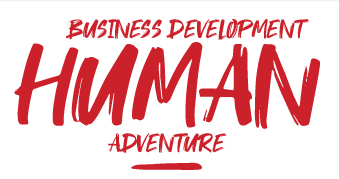
Our icédiens share their Erasmus+ experience
After discovering the partner universities and destinations chosen by our Erasmus+ scholarship students, we now turn to the stories of those who live this adventure on a daily basis. Through these authentic testimonials, ICD Business School takes you to the heart of their personal, academic and cultural experiences.

STEP 3: TESTIMONIALS
Studying in Mexico: Elisa’s Testimony from Anáhuac University 🌵

After presenting the five partner universities where our students are currently enjoying their Erasmus+ experiences, we’re now moving to the next chapter of our series "Destination Erasmus+". For this third step, Elisa, a student currently studying at Anáhuac University in Mexico, shares her impressions of her courses, the local culture, and daily life in Querétaro.
📚 Academics
1. How are your classes going at your host university? Are there any major differences with ICD Business School?
I chose 3 in-person classes and 2 online ones, so I only have classes on Tuesdays and Thursdays. Classes last only 1.5 hours (compared to 3–4 hours at ICD). They’re structured similarly to ICD, meaning a mix of theory, practical work, and group projects. Exams are fairly easy since they’re multiple choice, but we also have a final group project to submit for each course.
The biggest difference with ICD (and France in general) is the relationship with professors (and the administration). Here, students are close to their teachers and use informal language with them—it’s all much more relaxed.
Additionally, the campus is huge and has an American style. The university offers free access to all sorts of sports and artistic activities. It’s fully equipped (football, basketball, and padel courts, dance studios, a large gym that’s free and open all week, etc.).
The university also organizes many enriching conferences that we can attend for free on various topics (for example: a self-employed entrepreneur sharing how she started her business, or a talk about geo-economic relations between the U.S., Mexico, and China).
2. Is there a particular class or professor who has inspired you?
Not really, but I did choose one course in Spanish (I’m bilingual), and the other four are in English, focused on multinational companies and their strategies—which I find really interesting.
🌏 Culture & Leisure
3. What was your biggest surprise when arriving in your host country (culture, habits, lifestyle, etc.)?
My biggest surprise upon arriving in Querétaro was the warmth and friendliness of the people here. Mexicans are very welcoming and open-minded, and I immediately felt at ease (they only do one kiss on the cheek to say hello, by the way).
They’re also incredibly generous, and refusing an invitation can be seen as rude since they’re not used to hearing “no.”
I was also amazed by the vibrant colors in the cities—buildings and houses are all colorful.
Among the cultural differences, I’d also mention the rhythm of life and concept of time. In Mexico, punctuality is much more flexible than in France. For example, “ahorita” (which means “right now” and is used constantly) could mean “in a few minutes”… or “next week.”
Then, of course, the food is much spicier. I wasn’t a fan of chili at first, but over time I’ve started to enjoy this type of cuisine!
And finally, there’s always a reason to celebrate! I was really impressed by how omnipresent music and dancing are—on buses, in restaurants, and even in the streets. The culture of celebration is really different, and I loved discovering these joyful vibes.
That said, life in Mexico isn’t so different from Europe overall. That being said, I find the cost of living here fairly high for Latin America (especially in Querétaro and other big cities), although it’s still cheaper than in France.
4. Have you attended any cultural events or festivals in Mexico?
Unfortunately, I didn’t get the chance to experience Día de Muertos (Day of the Dead, held on November 2nd) ☹
So far, I haven’t attended any major events or Mexican festivals.
💰 Honor Scholarship
5. What does receiving the Erasmus+ Honor Scholarship mean to you, and how has it helped your experience abroad?
Receiving the Erasmus+ Honor Scholarship was a surprise—I wasn’t expecting it—but it turned out to be an amazing opportunity and a real honor.
It’s helped me a lot, especially since the cost of living in Querétaro, and particularly in my neighborhood, is quite high.
But more importantly, it allows me to travel and explore Mexico—a country rich in culture and full of diverse landscapes—and even nearby countries like Costa Rica, which I’ll have the chance to visit during Holy Week break.
HANYANG University (South Korea) 🏛️

After Mexico, let’s head to Asia for the next chapter of our Destination Erasmus+ series. Mathis, a Parisian student in 3rd year of the Grande École program at ICD Business School, is currently spending his semester at Chung-Ang University in Seoul, South Korea, thanks to the Erasmus+ Honor Scholarship. He shares his impressions of academic life, cultural contrasts, and springtime blossoms.
📚 Academics
1. How are your classes at your host university? Are there any major differences with ICD Business School?
Courses are going well for me, and they’re very different from what I experienced at ICD. The learning approach is much more individual. Out of my five courses, only one includes a group presentation—most work is done independently.
Classes are also shorter—1 hour and 15 minutes each—which is quite different from my experience at ICD. However, I learned from other students that this can vary depending on the course.
Attendance policies also differ: they’re up to each professor. Some are very strict, while others don’t even take attendance.
2. How do you perceive the teaching approach in South Korea compared to France?
I think I prefer the South Korean approach—it gives us more flexibility and freedom, although it also requires better organization.
🌏 Culture & Leisure
3. What surprised you the most upon arriving in your host country (culture, habits, lifestyle, etc.)?
Everything is different:
- Mealtimes are earlier (around 6–7 PM), and many restaurants close by 9 PM.
- People are very quiet, polite, and reserved in public but more expressive in relaxed or private settings.
- The city is incredibly safe—people leave their belongings unattended in public without concern.
- Seoul is also massive—reportedly six times larger than Paris—and built around wide roads and American-style buildings. But behind the main avenues, you’ll find small streets lined with bars and restaurants.
The cost of living is much lower than in Paris: full meals can be found for under €8, and public transport is about €1 per trip.
4. What is your favorite place in Seoul and why?
Given how big the city is, I don’t have a single favorite spot. But my favorite moment was the cherry blossom season in early April. The entire city celebrates with a festival, and it was beautiful—especially since I had never seen anything like it before.



